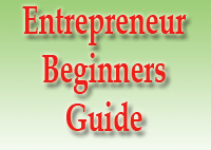Entrepreneur Beginners Guide
“Have Laser like Focus”
You must remain focused on your journey to greatness. —Les Brown, motivational speaker, author
Just a few weeks after being hired, Adam, my vice president of marketing and sales, popped his head into my office through cracked door and said, “I think we have a problem.” After I invited him in, he continued with an easygoing tone that belied the seriousness of his warning, saying, “I think we sell too many things. I find that sales arc suffering because we confuse prospects with so many options, and therefore people are less likely to buy.” didn’t respond for a few seconds, as I let the veracity of his observations sink in. He was right. My company needed to change; we needed to focus on what we did best instead of trying to be all things to all people.
That day, my company was on the verge of celebrating its ten-year anniversary. The company had come a long way since its founding on a small college campus. In the beginning days of the company, the focus was on building top-notch web applications and offering great value. However, ten years later we had grown to include numerous products and services under the umbrella of a holding company. Consequently, we developed a we-do-it-all mentality and pitch. Our marketing materials, which included pages of options and beautiful examples of our work, were expansive. When it came to media and marketing, if you needed it, we sold it.
Somehow over the ten years of existence, my company lost focus and with it the potential for true greatness. We subscribed to the common idea that expanding our line of products and services was a sure path to more success. It wasn’t. As a result, the company wallowed in mediocrity, trying to chase every market possible. Specifically, the quality of our products and services declined, employee morale suffered, resources were wasted, sales leveled off, and confusion abounded. We commoditized ourselves, and we were happy because that’s what we thought we were supposed to do.
This idea not only debilitates small and medium-sized businesses, but also large multinational companies. For example, during the 1990s, Apple suffered from an expansive product line that almost led it to bankruptcy. You probably know the story. It took the return of Apple’s cofounder, Steve Jobs,’ as CEO to turn the company around. How did he do it? Jobs eliminated nonessential product lines of the company, keeping only four. Some of his eliminations were profitable lines. Due in large part to its limited focus, Apple is now the most valuable company in the world. When discussing the amazing turnaround in a 2008 interview, Jobs said,
People think focus means saying “yes” to the thing you’ve got to focus on. But that’s not what it means at all. It means saying “no” to the hundred other good ideas that there are. You have to pick carefully. I’m actually as proud of the things we haven’t done as the things we have done.
Likewise, Pepsi-Cola stopped trying to be all things to all people in order to compete with its-rival Coca-Cola. In their book, The 21 Immutable Laws of Marketing, Al Ries and Jack Trout discuss Pepsi-Cola’s amazing growth during the 1980s when it changed its focus to reaching the teenage market. Consequently, Pepsi-Cola went from being outsold by Coca-Cola in the late 1950s by five to one to being only 10 percent behind in total sales in the United States. Ries and Trout wrote, “There seems to be an almost religious belief that the wider net catches more customers, in spite of many examples to the contrary.”
When my vice president came into my office to tell me that we needed to cut some of our businesses, 1 quickly reflected on my various entrepreneurial endeavors. At that time I had started fifteen different businesses. All of them had made money at some point, but only a handful were profitable. I realized that I needed to return to my start-up days when my focus was laserlike. That day I learned to say no, as Jobs would have recommended. I cut unnecessary businesses. Since then, my company has enjoyed an invigorating rebirth and growth period that can only be attributed to our willingness to say yes to saying no.

